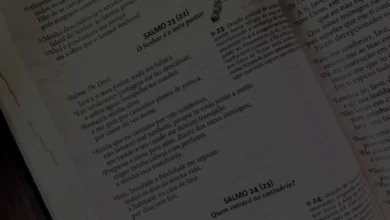When was the Old Testament written? List of 39 books!
When was the Old Testament written? In today's text, we will study a little more about each of the 39 books of the Old Testament and how we can learn from them for our Christian life.
We will also mention who and when wrote them.
Read with us and find out When was the Old Testament written?. Let's go!
When was the Old Testament written?
After all, when was the Old Testament written? The Old Testament, also known as the “Old Testament,” is a collection of sacred texts that plays a fundamental role in Jewish and Christian religious traditions.
The new testament nullifies the old
Composed of several books, the Old Testament covers a wide range of literary genres, such as historical narratives, laws, poetry and prophecies.
Its writing is attributed to different authors over centuries, covering a significant period of history.
Let's explore each book separately, discussing the author and the time in which they were likely written. Understand when the Old Testament was written:
Gênesis
The first book of Velho Testamento is Genesis, which means “origins”. It recounts the creation of the world, the story of Adam and Eve, the flood and Abraham's journey, among other events. The authorship of Genesis is often attributed to Moses, leader and prophet of the Israelite people. It is believed to have been written in the 13th century BC, during the period of the Exodus.
Êxodo
The book of Exodus narrates the liberation of the Israelites from slavery in Egypt and their journey towards the Promised Land. Moses is also traditionally considered the author of this book, which covers the events of the 13th and 12th centuries B.C.
Levítico
Leviticus is a book containing religious laws and regulations, including guidance on sacrifices, ritual purity, and priestly practices. The authorship, once again, is associated with Moses. It is believed to have been written around the 13th century BC
Números
The book of Numbers records the number of the people of Israel and their wanderings in the desert. This book is also attributed to Moses and is dated approximately to the 13th century BC
Deuteronômio
The last book traditionally attributed to Moses is Deuteronomy. It contains speeches from Moses to the Israelites, recalling the law and the covenant with God. It is believed to have been written late in the life of Moses, around the 13th century BC
Josué
The book of Joshua reports the conquest of Canaan by the Israelites after the death of Moses. It is a historical narrative that describes the distribution of the land among the tribes of Israel. The authorship is unknown, but the book was probably written in the 13th century BC
Juízes
The book of Judges presents a series of charismatic leaders known as “judges” who led the people of Israel. The authorship is uncertain, but this book was probably written during the 11th and 10th centuries BC
Rute
The book of Ruth is a short narrative that follows the story of Ruth, a Moabite woman, and her integration into the Israelite community. The authorship is unknown, but the book was probably written in the 11th or 10th centuries BC
Samuel 1 and 2
These books chronicle Israel's transition from a period of judges to monarchy, culminating in the reign of King David. Authorship is traditionally attributed to Samuel, the prophet. The books were probably written in the 10th and 9th centuries BC
Kings 1 and 2
The books of Kings detail the history of the monarchies of Israel and Judah, from the reign of Solomon to the fall of Jerusalem. The authorship is unknown, but they are believed to have been written in the 6th and 5th centuries BC
Chronicles 1 and 2
These books retell the history of Israel and Judah, focusing especially on King David and the Temple in Jerusalem. They were written after the Babylonian exile, around the 4th and 3rd centuries BC
Ezra and Nehemiah
These books record the return of the exiled Jews from Babylon and the rebuilding of Jerusalem and the Temple. They were written in the 5th century BC
Ester
The book of Esther tells the story of a young Jewish woman who becomes queen of Persia and saves her people from annihilation. The authorship is unknown, but the book was probably written in the 4th or 3rd centuries BC
Jó
The book of Job is a meditation on human suffering and divine justice. The authorship is uncertain, and the date of composition varies, but is generally placed in the 5th to 3rd centuries BC
Salmos
The Psalms are a collection of religious songs and poems. Various authors contributed over time to this book, which was compiled over several centuries, probably from the 11th to the 4th centuries BC
Provérbios
The book of Proverbs contains wisdom and practical advice. Authorship is mainly attributed to King Solomon, but the book was compiled over several generations, from the 10th to the 6th centuries BC
Eclesiastes
Ecclesiastes, also known as “Preacher”, questions the meaning of life and the search for wisdom. Traditionally, it is attributed to Solomon and was written in the 4th or 3rd centuries BC
Song of Songs
This book is a collection of lyrical poems that celebrate human love and can also be interpreted as a metaphor for the relationship between God and the people of Israel. The authorship is attributed to Solomon and is dated to the 6th to 4th centuries BC
Isaías
The book of Isaiah is an impressive collection of prophecies spanning generations. The prophet Isaiah, son of Amoz, is credited as the author of the first 39 chapters.
He lived during the 8th century BC and witnessed the fall of the Northern Kingdom (Israel) and the threat to the Southern Kingdom (Judah) by Assyria. Isaiah's prophecies warned of impending destruction and called the people to righteousness.
However, the remaining chapters (40-66), often called “Deutero-Isaiah,” are attributed to an author or group of authors who lived during the Babylonian exile (sixth century BC). These prophecies speak of consolation, restoration and the coming of the Messiah.
Jeremias
The book of Jeremiah is a collection of prophecies and reflections attributed to the prophet Jeremiah. He lived during a tumultuous time in Judah's history in the seventh century BC, when the people were turning away from God and facing political and military threats.
Jeremiah warned of the destruction of Jerusalem and the imminent Babylonian captivity. The book also includes the prophet's personal lamentations and prayers.
Jeremiah's writing is considered one of the most emotional and introspective in the Old Testament, reflecting his struggle with suffering and the responsibility of being a messenger of God.
Lamentações
The Book of Lamentations is a collection of five plaintive poems that lament the destruction of Jerusalem and the Temple.
Although authorship is traditionally associated with Jeremiah, there is no absolute consensus on the author. The work is an emotional testimony to the consequences of the Babylonian exile, reflecting the pain, sadness and deep mourning of the people.
Ezequiel
The prophet Ezekiel is the author of the book of the same name, composed mainly of visions and visionary prophecies. Ezekiel lived during the Babylonian exile in the sixth century BC, when many Jews were taken to Babylon.
His visions address themes of restoration, divine judgment and the importance of obedience to God. The book is known for its vivid metaphors and complex symbolism, often presented in a highly symbolic and dramatic manner.
Daniel
The book of Daniel is a unique combination of historical and apocalyptic narrative. The prophet Daniel is the traditional author of this book, which is set during the Babylonian exile and beyond.
Daniel served in the Babylonian court and, over time, interpreted dreams and visions for kings, revealing future events and ensuring God's final victory over worldly powers.
The apocalyptic visions in the book of Daniel are highly symbolic and address future events, including the coming of the Messiah.
Oséias
The book of Hosea is attributed to the prophet after whom the book is named. He lived during the 8th century BC, a period of political and spiritual instability in Israel and Judah.
Hosea's prophecies are marked by his relationship with Gomer, an unfaithful woman, symbolizing the relationship between God and the unfaithful people. The book focuses on the idea of love, mercy and restoration, even in the face of infidelity.
Joel
The authorship of the book of Joel is uncertain, and its date of composition varies, but it was probably written in the fourth century BC The book of Joel discusses a plague of locusts that devastated the land and uses this event as a metaphor to herald the Day of the Lord , a time of judgment and restoration.
Amós
Amos, a shepherd and farmer, is considered the author of the book that bears his name. He prophesied during the 8th century BC, directing his messages to Israel and its neighboring nations. Amos condemned social injustice, oppression, and idolatry, emphasizing the importance of justice and righteousness.
Obadias
The book of Obadiah is attributed to the prophet Obadiah, whose name means “servant of Yahweh”. The authorship and exact date are uncertain, but the book was probably written after the destruction of Jerusalem in 586 BC
Obadiah condemns Edom for its cruelty toward Israel and announces divine judgment on Edom.
Jonas
The book of Jonah, whose protagonist is Jonah himself, is a unique narrative among the Minor Prophets. Although it is difficult to date the book precisely, it was probably written between the 8th and 4th centuries BC. The story recounts Jonah's initial reluctance to obey God and preach in Nineveh, as well as the lesson of mercy and repentance.
Miquéias
The prophet Micah is credited with the book that bears his name. He prophesied during the 8th century BC, contemporaneously with Isaiah. Micah criticized corruption, oppression, and idolatry in the cities of Judah and Israel.
The book also speaks of the hope of a future righteous ruler and the restoration of Jerusalem.
Naum
The book of Nahum is attributed to the prophet Nahum, but his life and context are less well known. The book was probably written in the 7th century BC, after the fall of Nineveh in 612 BC. The book proclaims God's judgment on Nineveh, the Assyrian capital, and highlights divine sovereignty over the nations.
Habacuque
The prophet Habakkuk is the author of the book of the same name, written during the 7th century BC. The book presents a dialogue between the prophet and God, where Habakkuk questions divine justice in the face of oppression and sin. God responds by asserting His sovereignty and promising judgment.
Sofonias
The book of Zephaniah is attributed to the prophet Zephaniah, who lived during the reign of Josiah, in the late 7th century BC. The book announces divine judgment on Judah and the surrounding nations due to idolatry and injustice. However, it also offers hope of restoration and salvation.
Ageu
The book of Haggai is attributed to the prophet Haggai, who prophesied after the return of the Jews from Babylonian exile, around 520 BC. The book exhorts the people to rebuild the Temple of Jerusalem, emphasizing the importance of prioritizing the worship of God.
Zacarias
The prophet Zechariah is the author of the book of Zechariah, written in the 6th century BC During the post-exilic period. The book contains apocalyptic visions, promises of restoration and the coming of the Messiah. The book also focuses on the rebuilding of the Temple.
Malaquias
The last book of the Minor Prophets is attributed to the prophet Malachi, whose name means “my messenger”.
The book was written after the Babylonian exile, in the 5th century BC Malachi rebukes the people's spiritual negligence and announces the coming of the messenger who would prepare the way for the Lord.

In conclusion, the Old Testament is a fascinating collection of 39 books that span a wide range of literary genres and were written over a significant period of history.
These books have played a fundamental role in Jewish and Christian religious traditions, influencing the faith and culture of countless people over the centuries.
The authorship of the Old Testament books is often attributed to different authors, with emphasis on Moses, Samuel, and other prophets and leaders.
Composition dates vary considerably, with some books dating from the 13th century BC to the 5th century BC
These sacred texts not only provide in-depth insight into the history and faith of the people of Israel, but they also contain timeless messages about morals, ethics, justice, and the human relationship with God.
They continue to be studied, debated, and inspiring to people of all faiths and backgrounds, demonstrating the enduring relevance of the Old Testament in the search for spiritual understanding and wisdom.
FAQ – (Frequently Asked Questions)
What is the approximate date of writing the Old Testament?
The approximate date of writing the Old Testament varies, but the earliest books, such as Genesis, were probably written between the 15th and 13th centuries BC, while the later books, such as Malachi, were written in the 5th century BC.
Who were the authors of the Old Testament?
The Old Testament was written by different authors over centuries. Some of the best-known authors include Moses, the prophets Isaiah, Jeremiah, and Ezekiel, as well as several priests and scribes.
What was the original language of the Old Testament?
The Old Testament was originally written in ancient Hebrew, with some portions in Aramaic, especially in the books of Daniel and Ezra.
How was the Old Testament preserved through the centuries?
The Old Testament was preserved through handwritten copies made by dedicated scribes. Additionally, the Septuagint, an ancient Greek translation, played an important role in the dissemination and preservation of texts.
What is the importance of the Old Testament in the history of religion and culture?
The Old Testament played a fundamental role in the formation of the Jewish and Christian religion. Furthermore, it has significantly influenced Western culture, ethics, and literature over the centuries, becoming an essential part of humanity's cultural heritage.




